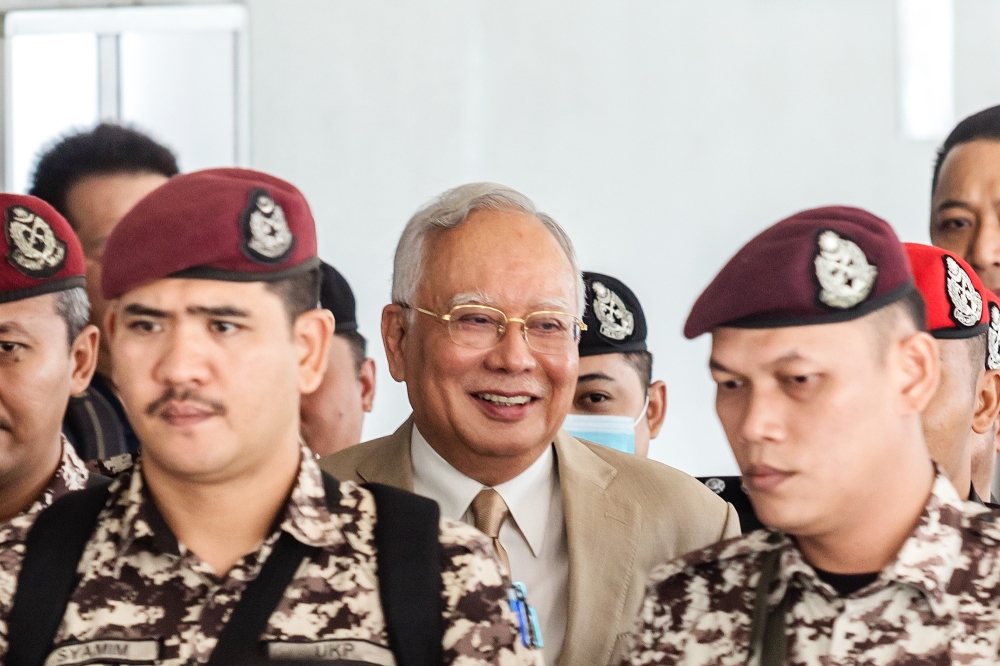FEBRUARY 7 — The authority and power to grant pardon is set out under Article 42 of the Federal Constitution (FC). Whilst in public discourse and also judicial pronouncement the term Royal prerogative has been used, it is more accurate to describe His Majesty’s authority and power as being that of an exercise of YDPA’s discretionary power as a Constitutional Monarch.
The YDPA is a creation of the written Constitution and whilst the various Royal Highnesses have pursuant to Article 181 of the FC there, “... sovereignty, prerogatives, powers and jurisdiction......” being affirmed and saved as the Rulers of their respective States. The same cannot be said of the YDPA’s exercise of the power of Pardon in the Federal Territories.
The YDPA’s power is stated in the opening phrase of Article 42(1) “The YDPA has power to grant pardons, reprieves and respites in respect of all offences in the Federal Territories of Kuala Lumpur, Labuan and Putrajaya.”
There are two categories of the Power to Pardon: (i) Full pardon and (ii) Conditional Pardon, i.e. “... reprieves and respite ...” in respect of the judicial sentences that have been visited upon the applicant.
Judicial decisions and the law
The Courts have consistently held that the exercise of the YDPA’s power to pardon is not susceptible to challenge in Courts and is non-justiciable. In the Court’s ruling and public discourse, this power has been characterised as a royal prerogative.
A recent case was the Court of Appeal’s decision of Dato Seri Anwar bin Ibrahim v Mohd Khairul Azam [2023] where the respondent challenged the grant of pardon for DS Anwar Ibrahim. He failed at the Appellate Court. The Federal Court refused to grant leave. The COA accepted that the decision to pardon DS Anwar cannot be challenged.
It may well be that a successful petitioner for a Pardon may still assert his innocence but let us examine whether as a matter of law a grant of Pardon and its impact on finding of guilt in respect of the offence.
The nature and scope of power to pardon
It is clear that the power to pardon is a legacy of common law. The applicant who has been convicted of an offence against the realm and of the King’s justice. A Full Pardon sets aside completely the penalties that have been imposed be it custody in jail and or fines. In other words, the consequences that have been meted out by judicial sentencing are set aside fully in a Full Pardon. In a Conditional Pardon, the duration of custody may be commuted, and fines reduced. It is noteworthy that even in the granting of the Pardon the verdict of legal guilt subsists. The Pardons Board is not an Appellate body that can review, revisit or revise a Court’s finding of the prisoner being held to be guilty of the offence as charged and convicted.
It is unclear whether the Pardons board will take into consideration the applicant’s stance over his acknowledgment of guilt or expressing remorse. Save and except the obligation to consider the opinion of the Attorney General, Article 42 does not have any guidelines in respect to the process of what matters will be taken into consideration by the Board.
Is the exercise of the power to pardon solely a Royal prerogative of the YDPA or is His Majesty obliged to accept the Pardons Board’s advice? The YDPA chairs the Pardons Board and so has a significant role in setting the agenda and also in the Board’s deliberations and the Attorney General’s opinion shall also be considered. The Court of Appeal in DS Anwar v Khairul Azam’s case suggests that the AG’s opinion is not a mandatory requirement. One may legitimately conjecture that in a normal case that His Majesty and or members of the Board will request for the AG’s opinion. Once the decision of the Pardons Board is made, the advice will be tendered to the YDPA to make His Majesty’s decision.
As observed existing precedents have unequivocally rejected any judicial review of the YDPA’s decision. In Superintendent of Pudu Prison & Ors v Sim Kie Chon [1986], the apex Court ruled that “the Pardons Board is only an advisory body and makes no decision whatsoever as such but only tenders advice to His Majesty.”
In all common law countries with the power to pardon it is clear that the legal judicial finding of guilt is assumed and not set aside.
The furore over the Conditional Pardon for the former Prime Minister DS Najib has highlighted the need for more transparency on the Pardon’s Process and the issuance of guidelines on the process. Public disquiet if couched in measured reasonable language ought not to be quelled by threats of investigation for commission of offence against Royal Personage. Clear guidelines governing the process and application for Pardons must be developed and promulgated. Malaysia is not alone that the exercise of the power to grant clemency by an incumbent Executive power in controversial cases have elicited intense debates. In many Commonwealth nations, there are guidelines. In a healthy mature deliberative democratic nation governed by the rule of law this is an imperative.

* This is the personal opinion of the writer or publication and does not necessarily represent the views of Malay Mail.





















